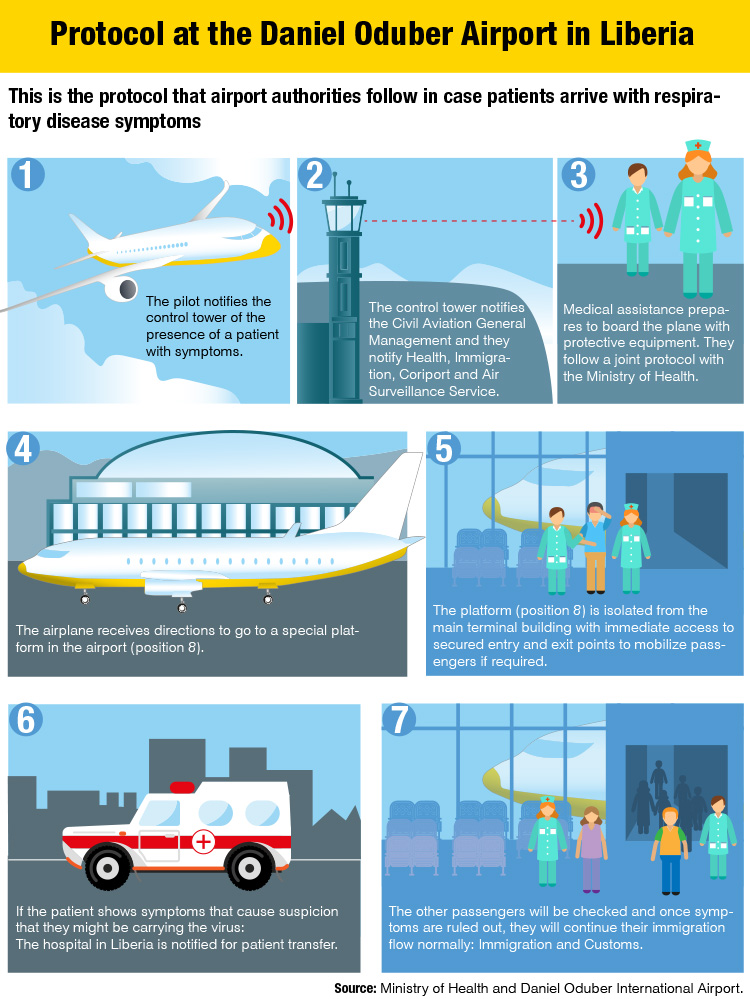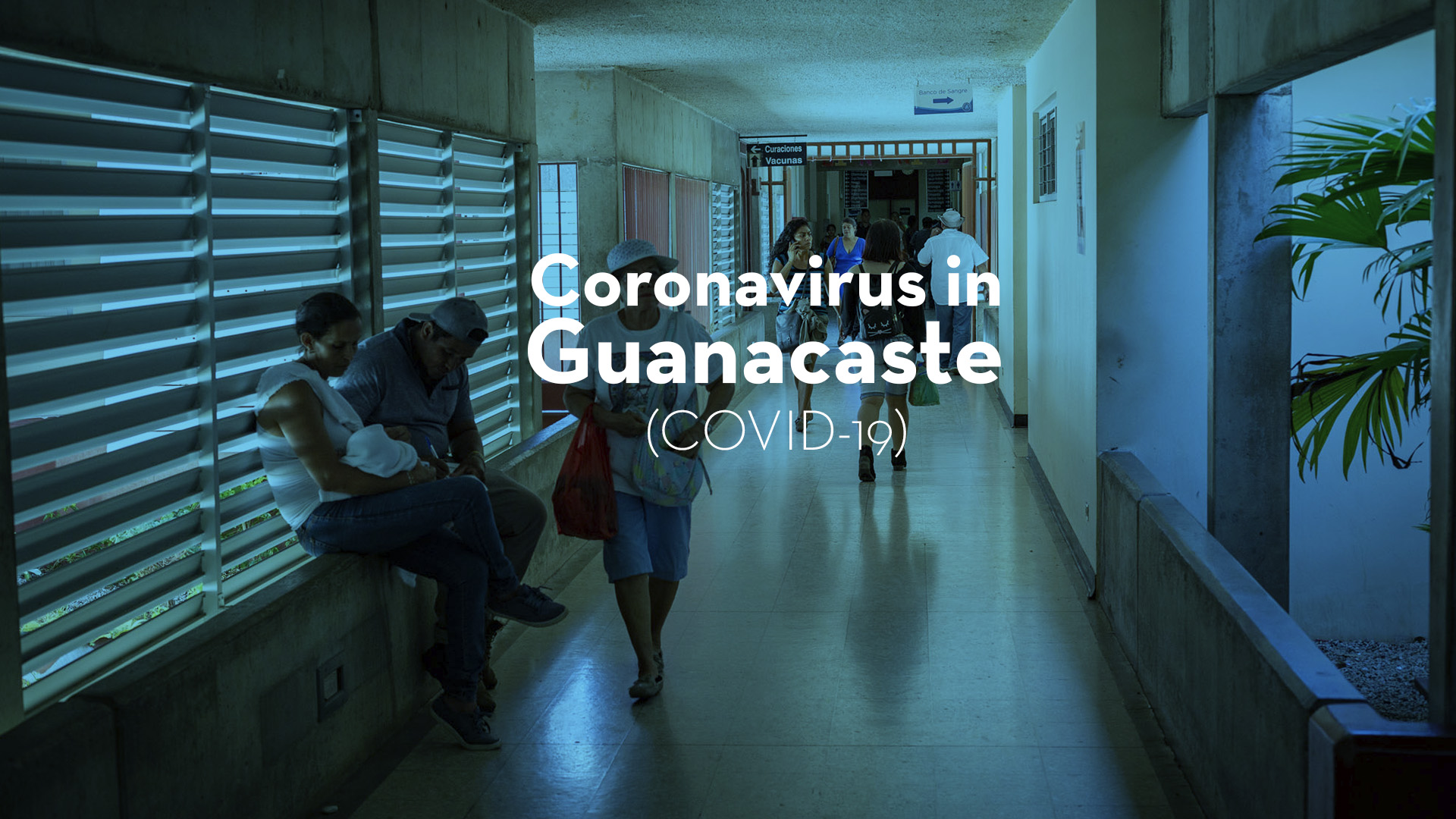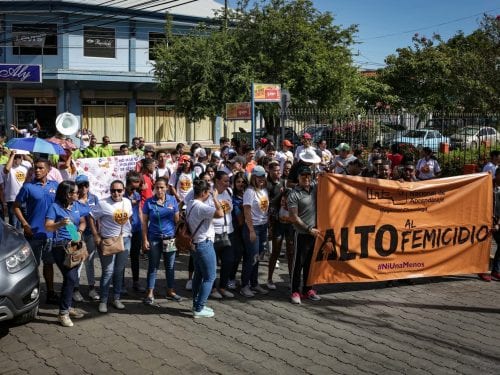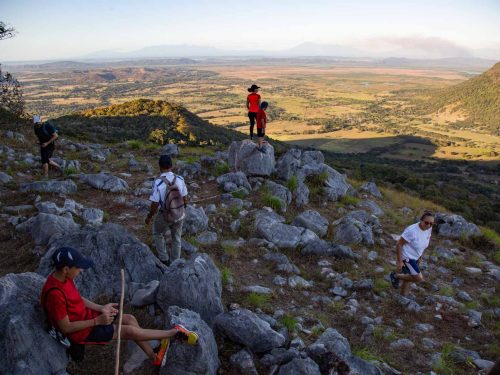
In the midst of an emergency, information changes very quickly. Please note that this story was published on March 10 and may be out of date. For the latest information, please visit our home page.
The Ministry of Health reported that in Guanacaste, there is at least one confirmed case of Coronavirus (COVID-19), a new virus that is spreading throughout the world. The 70-year-old American woman who lives in Costa Rica recently traveled to her home country.
The Deputy Minister of Health, Denis Angulo, assured that the case is being monitored by the ministry and is currently under control.
As of the afternoon of Tuesday, March 10, the Ministry of Health confirmed 13 positive cases and 179 suspected cases around the country. Another 59 suspected cases have been ruled out by the authorities.
Of the confirmed cases, six are foreigners: (all Americans): the 70-year-old woman in Santa Cruz, and a couple, both 49 years old, in a hotel in San Jose.
COVID-19 originated in the town of Wuhan in China on December 31, 2019 and has spread rapidly throughout the world. Its mortality rate within China is 2%, but outside of China it has been 0.7%. However this data is still preliminary because many cases do not get reported since the disease has symptoms that are very similar to those of a common flu.
The Liberia hospital laboratory is responsible for analyzing suspected cases of COVID-19 in Guanacaste. The medical center’s director, Marvin Palma, told The Voice that as of Monday night they had analyzed 10 samples from people with suspicious symptoms. Only the Ministry of Health has the results of these tests, which they release daily through press releases and conferences.
Yesterday, March 9, the government issued strong guidelines to prevent the virus from spreading in the country. They ordered public officials who can do their jobs from home to telecommute and recommended that private companies do the same. In addition, they canceled all concerts and mass events.
We want the impact of the virus’s transmission in the country to be as mitigated as possible,” said President Carlos Alvarado.
“We don’t want anyone to die from the virus,” added Minister of Health Daniel Salas.
Meanwhile, on social networks, lies and misinformation spread faster than the virus, and obtaining information in a context like this gets complicated. Therefore, in this article, we let you know everything you need to know about the virus in the province.
1. “The virus dies with heat”
Some viruses such as influenza or the common flu are seasonal. That is to say, they tend to disappear with the arrival of dry season, which is Costa Rica’s “summer,” but it is still too early to say that the same thing will happen with the virus that causes COVID-19 since there are few scientific studies on the subject (and those that exist contradict each other).
In other words, nothing and no one at this time can say for certain that the virus will not survive or spread in Guanacaste “because of the heat.”
On this issue, the Deputy Minister of Health told The Voice, “the coronavirus is very new. Its behavior is still variable, so it is hard for us to prevent the spread. We know very little about it so it would be irresponsible to say how it adapts or not.”
In a scientific article released on March 8 in the South China Morning Post, a group of scientists from the Chinese university Sun Yat-sen suggested that the virus spreads faster at lower temperatures, but the article still has no review of peers, which is the process to validate a scientific publication.
On the other hand, a study by a group of researchers, including experts from universities such as Harvard, indicated that temperature alone does not affect the behavior of the virus.
What is clear is that, once the body is infected, taking hot water baths or spending long periods in the sun will have no effect on the virus or the illness, according to a BBC article.
Scientists consulted by the BBC recommend washing sheets and bedding in general at temperatures above 60 degrees Celsius (140 F), which kills virus that could be harbored in the cloth. Of course, they point out that the body should never be subjected to such temperatures in order to avoid or cure the disease.
2. Can I go to mass events like civic parties or concerts?
No, you shouldn’t. As of yesterday, the government issued an executive decree prohibiting all mass events such as traditional horse parades, carnivals, civic fiestas and concerts, among others.
Although cinemas and theaters will continue to run, the authorities have ordered holding fewer showings per day and doing more cleaning in the auditoriums. Meanwhile, sporting events will be held behind closed doors.
These preventive measures will last at least two or three weeks, during which time the authorities anticipate evaluating the virus’s spread in the country.
According to Deputy Minister of Health Denis Angulo, a mass event is defined as the concentration of at least three people in a square meter, within an open or closed space.
The deputy minister insisted that it is important to not attend these events since transmission can be greater in crowded spaces.
In Guanacaste, the committee for the Cañas civic fiestas (scheduled from March 12 to 16) reacted to the decree and canceled the event until further notice.
Angulo stressed that anyone who has attended a crowded activity in recent days should pay attention to the appearance of symptoms related to the virus, especially those that have other diseases such as hypertension or diabetes.
3. Am I going to miss medical appointments?
No. Hospitals and medical centers in Guanacaste do not currently have any change in seeing patients, as has been done in hospitals in San Rafael de Heredia, Alajuela and Cartago.
“The series of measures [in hospitals] will evolve according to the disease burden,” said Roman Macaya, president of the Costa Rican Social Security (CCSS), on Monday at a press conference.
The director of Liberia’s hospital, Marvin Palma, confirmed to The Voice that appointments in that hospital for outpatient consultations, surgeries and all other services are functioning normally up until now.
We are working as usual because we don’t have cases of coronavirus admitted,” he said.
The La Anexion hospital in Nicoya is also working normally, but they are taking certain measures. According to the director, Anner Angulo, patients will only be allowed to be accompanied by others when necessary for the patient, both for emergencies and outpatient consultations. The doctor also asks that those who have flu symptoms reschedule appointments by calling the medical center (2685-5066).
The Minister of Health and the president of the CCSS have requested that people only use hospital emergency services in necessary cases. According to Macaya, hospitals should form a line exclusively for patients with respiratory problems.
Palma said that this measure is being implemented in Liberia. “A rapid response team is activated, so we are seeing all symptomatic cases that come to the emergency room,” he said.
When patients have symptoms of respiratory diseases, they are evaluated by doctors and, if they have the symptoms of coronavirus 19, a mask is put over their mouths and they are treated in an office dedicated exclusively to this type of patient.
Afterward, medical personnel examine whether, in addition to the symptoms, they have a history of contact with people from countries with the reported virus. Samples are taken and, according to their health condition, they are hospitalized or sent home on disability and with a report to the respective health area for follow-up.
The hospital has a pre-selected hospitalization area to admit patients who are eventually confirmed as having the virus.
4. Neither border closures nor Daniel Oduber airport problems
The Daniel Oduber International airport in Liberia is operating completely normally. The general manager, Cesar Jaramillo, confirmed that no flight has been canceled, either leaving Costa Rica or coming to our country.
Jaramillo emphasized that every passenger, whether Costa Rican or foreigner, can leave and enter the country, from Guanacaste, without a problem.
The manager’s statement was seconded by Deputy Minister of Health Denis Angulo, who told The Voice of Guanacaste that the country follows the World Health Organization (WHO) guidelines that recommend not closing any borders.
It would be hard for closing borders to accomplish anything and it would just be another blow to the country’s economy. [Closure] is the dominion of each country, but we follow the WHO recommendations not to close borders and be vigilant of cases,” Angulo commented.
However, the Liberia airport does have a security protocol that is activated at the moment when an airplane in the air notifies the airport control tower of the presence of a patient with symptoms.
Once this happens, the airport orders the aircraft to go to an exclusive site at the airport to proceed to have a medical assistance team board the airplane and assess the passenger.
If it turns out that the passenger is suspected of having the virus, he or she will be transferred to the hospital in Liberia and the rest of the passengers on the plane will be assessed in a space conditioned exclusively for that.

“The issue of country of origin does not matter now. There are 120 countries in the world and 80 have already reported cases, which is logical with these diseases. So it is no longer appropriate to activate a protocol by country of origin. It should be made clear that the airport is a relative, but not total, barrier to the disease,” Jaramillo commented.
From the Ministry of Health, Angulo endorses the airport procedure. “That procedure is correct. If symptoms are seen on the plane, the handling is much better because it is practically isolated from the moment it lands,” he commented.
Jaramillo did make it clear that the protocols currently carried out by the airport could change in the future if necessary.
“We don’t know if this is going to continue like this because all this is a lot of change and protocols have to be reviewed constantly. But as of today, [Monday, March 9,] our services are not affected in any way,” the manager concluded.
5. Are classes suspended in schools and colleges?
The academic year continues in Guanacaste and in the rest of the country. That’s how emphatic the Minister of Education, Guiselle Cruz, was when asked by the media about whether or not classes should continue in schools and colleges due to COVID-19.
Children are not within the risk group, for everyone’s peace of mind. They can get the virus but they are not within the risk groups,” Cruz said during a press conference yesterday.
Authorities did say that, as a preventive measure, students with flu symptoms should not attend educational centers.
The minister of education added that classes will only be suspended when there is a health order that requires it.
There are exceptions in the country. Classes at the Monseñor Ruben Odio high school, the Maximo Quesada CTP and the Reverendo Francisco Schmitz school, all in Desamparados, were suspended due to positive cases of COVID-19.
The Ministry of Health and the Ministry of Public Education (MEP) recommended that school officials distribute and display informational flyers, maintain active hand-washing protocols and clean bathrooms and other areas of the educational center more frequently.
The executive president of AyA, Yamileth Astorga, said during a press conference that the institution coordinates with MEP to provide them with water storage tanks to ensure that the country’s elementary and high schools have the necessary supply to take care of the hygiene measures.
In addition, they will provide water tanker trucks to schools and communities that suffer from water shortages.







Comments